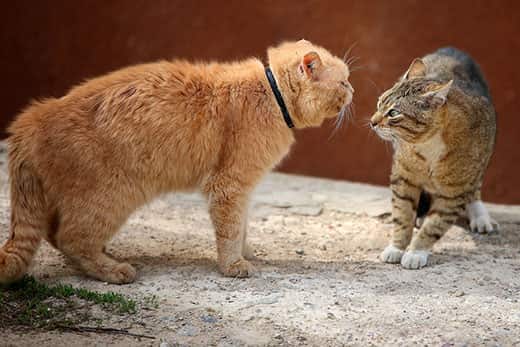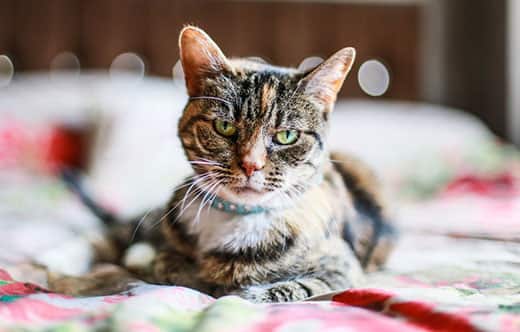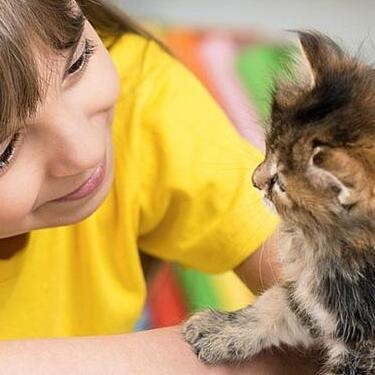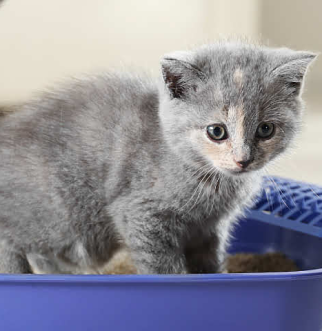
-
Find the right food for your pet
Take this quiz to see which food may be the best for your furry friend.
Find the right food for your pet
Take this quiz to see which food may be the best for your furry friend.
Featured products
 Small & Mini Savory Stew with Chicken & Vegetables Dog Food
Small & Mini Savory Stew with Chicken & Vegetables Dog FoodA delicious complement to the nutrition of Science Diet Small & Mini 7+ dog food
Shop Now Adult 7+ Perfect Digestion Chicken, Whole Oats & Brown Rice Recipe Dog Food
Adult 7+ Perfect Digestion Chicken, Whole Oats & Brown Rice Recipe Dog FoodScience Diet's breakthrough nutrition supports ultimate digestive well-being & healthy microbiome for dogs age 7+
Shop Now Adult Healthy Cuisine Roasted Chicken, Carrots & Spinach Stew Dog Food
Adult Healthy Cuisine Roasted Chicken, Carrots & Spinach Stew Dog FoodDelicious roasted chicken paired with tender vegetables in a succulent stew
Shop NowFeatured products
 Adult 7+ Tender Tuna Dinner Cat Food
Adult 7+ Tender Tuna Dinner Cat FoodWith delicious chunks in a decadent gravy
Shop Now Adult Savory Entrée Can Variety Pack Cat Food
Adult Savory Entrée Can Variety Pack Cat FoodPrecisely balanced nutrition with the delicious taste of savory minced chicken to help fuel the energy needs of cats during the prime of their life
Shop Now Adult 7+ Senior Vitality Chicken & Vegetable Stew Cat Food
Adult 7+ Senior Vitality Chicken & Vegetable Stew Cat FoodImproves Everyday Ability to Get Up & Go
Shop Now -
Dog
- Dog Tips & Articles
-
Health Category
- Weight
- Food & Environmental Sensitivities
- Urinary
- Digestive
- Joint
- Kidney
-
Life Stage
- Puppy Nutrition
- Adult Nutrition
- Senior Nutrition
Cat
- Cat Tips & Articles
-
Health Category
- Weight
- Skin & Food Sensitivities
- Urinary
- Digestive
- Kidney
-
Life Stage
- Kitten Nutrition
- Adult Nutrition
Featured articles
 Does My Pet Hate Me?
Does My Pet Hate Me?Learn tips for bonding with your pet if you've ever thought, 'My dog doesn't like me, or 'Why do I have a standoffish cat?'
Read More Do Dogs and Cats have Belly Buttons?
Do Dogs and Cats have Belly Buttons?Learn whether cats & dogs have belly buttons like humans, what the function is, and if there are any health concerns associated with it.
Read More Why Are Dogs and Cats So Cute?
Why Are Dogs and Cats So Cute?If waggy puppy dog tails and furry kitten yawns make you swoon, you're not alone. Why are cats so cute? And, dogs too! Let's find out!
Read More -


In a multiple cat household, there's bound to be a disagreement or two between kitty siblings. But when you've got a bully cat on your hands, you'll want to take steps to stop the one cat bullying another.
First, it's important to identify how and why your cat is being a bully. Then, you can work to curb this unwanted behavior.
What Is a Bully Cat?
Cat are inclined to be territorial, even if they've lived with other pets their entire lives. When one cat kicks it up a notch and makes life difficult for another, however, it's more than just playing around.

Pay close attention to your cat's body language. Some common signs of cat bullying include:
- Staring
- Hissing
- Biting
- Stalking
- Clawing
- Aggressive body posture, arched back, puffed-out tail, angled or flattened ears, dilated pupils
In some cases, the reason for cat aggression is obvious: the introduction of a new cat or other pet, or even a human baby. The more evident types of aggression — e.g., biting, attacking, etc. — often result in physical harm. But bullying is usually about asserting dominance, not an intent to terrorize.
As the American Association of Feline Practitioners points out, "Aggressors can control access to food, litter boxes, resting and perching spots, and attention, and the victim usually becomes withdrawn." Unless you're paying close attention, you may not even notice the intimidation.
Why Do Cats Bully?
Bullying behavior stems more from the top-dog, so to speak, cat asserting their dominance, explains Sharon L. Crowell-Davis, DVM, in an article for VetFolio. It can be more discreet than clear-cut aggression. In fact, because they're so good at throwing subtle shade, you may not even realize that one of your cats is behaving badly.
"Some high-ranking cats are bullies; that is, they regularly exhibit intense dominance displays and aggression to lower-ranking cats, even when the low-ranking cat is clearly signaling submission and is attempting to avoid interaction," writes Dr. Crowell-Davis. This type of bullying usually occurs in households that are socially stable with no outward stressors except that one cat wants to assert dominance over important things such as food, water, the litter box, toys and bedding.
In other words, some cats just want to be the boss. This desire can increase with age, says the ASPCA. So speak with your veterinarian if you notice increased aggression or other behavioral changes in your aging cat.


Tasty Tips
How to Stop Cat Bullying
Living with a bully cat is stressful for all family members, including humans. To stop one cat bullying another, start by observing your cats' daily routines for signs of covert bullying. But keep in mind, when a cat exhibits aggressive or domineering behavior, it doesn't necessarily mean they're an aggressive or domineering pet.
"Aggression is not a diagnosis or a description of a cat's temperament but a consequence of an emotional state," explains International Cat Care. A bully cat — or any cat, for that matter — shouldn't be punished physically because it can lead to more fear and even more extreme aggression. Instead, focus on calming your aggressive cat.
Do this by putting an end to roughhousing and play fighting, as it can validate this intimidating behavior. Consider separating the cats during mealtime and installing more litter boxes so each one can feel like they have their own territory. You may want to double up on toys and cat perches, too.

Cats may not want to share their pet parents, either. Does your cat hiss or growl to prevent another cat from snuggling up with you? That's their way of asserting dominance. By (safely) removing the bully cat from the situation, you can relay that this behavior isn't acceptable. Never intervene between two brawling cats, though, as you may be injured. Redirect their attention by making a loud noise or throwing a toy in the opposite direction.
Keep up the positive reinforcement of good behavior, as it may take a few weeks or months to influence their actions. If the bullying becomes too extreme, speak to your vet to rule out any underlying medical issues.
Your cat kids may not become BFFs with each other, but by patiently working with them to achieve at least basic civility, you can create a happy, harmonious home for everyone.


Christine O'Brien is a writer, mom, and long-time cat parent whose two Russian Blues rule the house. Her work also appears in Care.com, What to Expect, and Fit Pregnancy, where she writes about pets, pregnancy, and family life. Find and follow her on Instagram and Twitter @brovelliobrien.
Related products
Related articles

Discover how to train your cat, starting with very basic first steps that both reward good behavior and discourage the bad.

Cats are naturally very clean and chances are your kitten will already have learned how to use the litter box from her mother before she comes to live with you.

What is the best food for an overweight cat? Learn all about weight control food for cats, including what's in it and how it works.

How do you get a cat to lose weight? Learn all about cat foods for weight loss, including how to choose weight control cat food and exercise tips.

Put your cat on a diet without them knowing
Our low calorie formula helps you control your cat's weight. It's packed with high-quality protein for building lean muscles, and made with purposeful ingredients for a flavorful, nutritious meal. Clinically proven antioxidants, Vitamin C+E, help promote a healthy immune system.
Put your cat on a diet without them knowing
Our low calorie formula helps you control your cat's weight. It's packed with high-quality protein for building lean muscles, and made with purposeful ingredients for a flavorful, nutritious meal. Clinically proven antioxidants, Vitamin C+E, help promote a healthy immune system.

